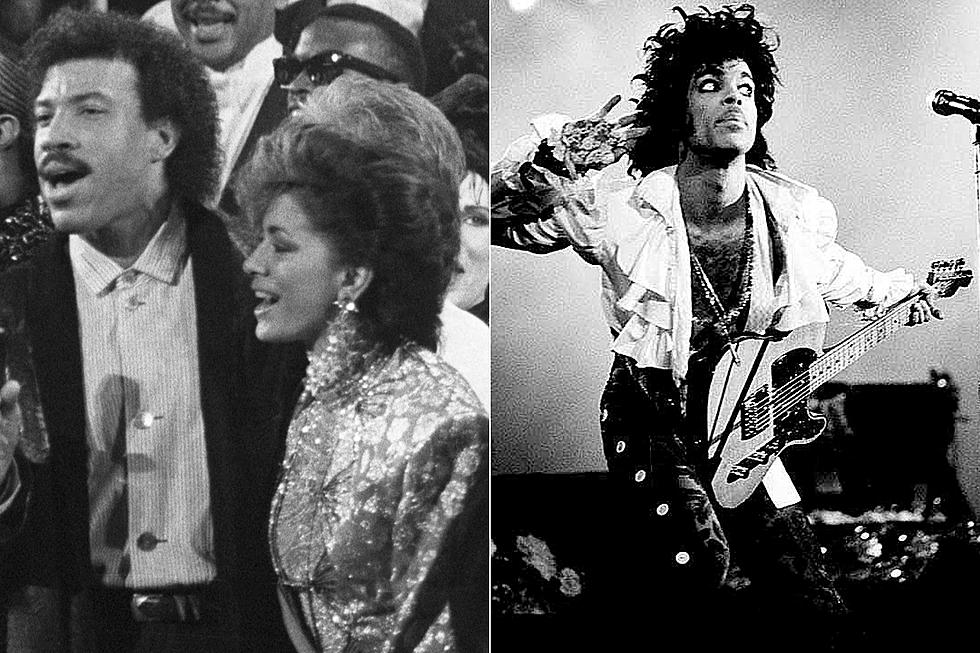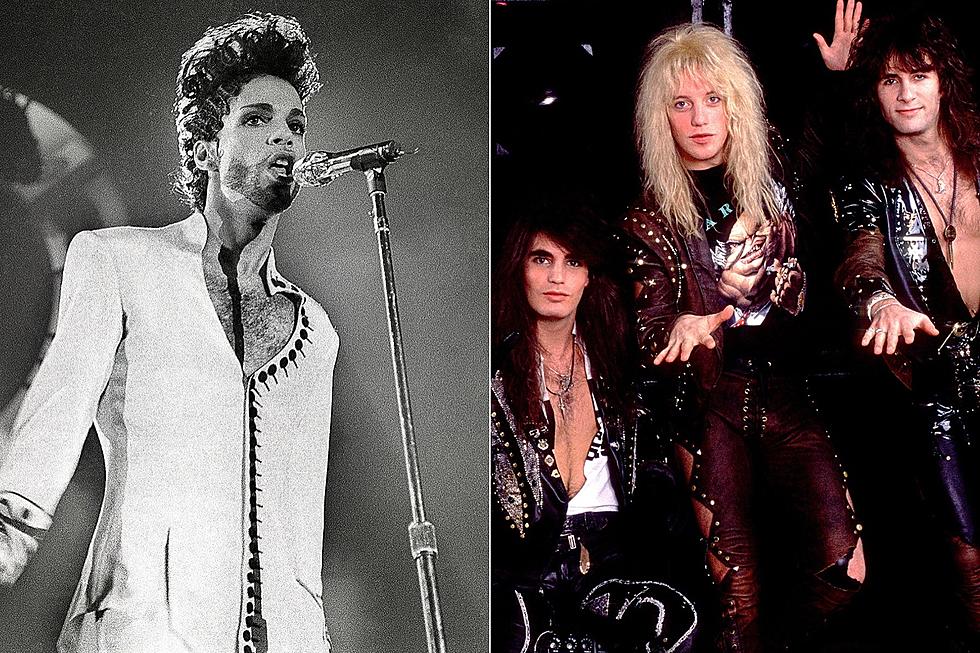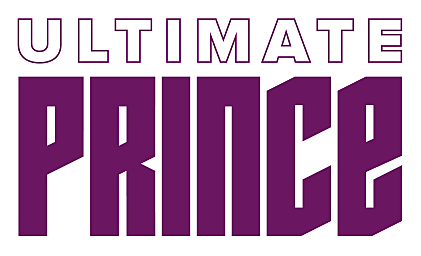
How Prince Slid Into Greatness on ‘Dirty Mind’
Prince arrived on Oct. 8, 1980.
Yes, he was born 22 years earlier, and had already released two albums that were produced, written and performed entirely by him.
But on Oct. 8, 1980, his third album, Dirty Mind, came out and heralded a brand new Prince, one who stripped naked (figuratively and almost literally) and announced himself a star for the new decade.
Unlike his first two albums, 1978's For You and the following year's self-titled LP, which were recorded at various Minnesota and California studios, Dirty Mind was made in Prince's home studio in Minneapolis. And that distinction made every difference in the world.
Record-company suits weren't exactly breathing down his neck during the actual recording of the first two albums; he was given a substantial, and nearly unprecedented, amount of control over his work when he signed to Warner Bros. But holed away at home, Prince had a relative new freedom to do what and when he wanted. He often recorded marathon sessions late at night in May and June of 1980, working on a batch of new songs that lyrically went further out there as he stripped down the tracks to their barest essentials.
The eight songs that make up the finished Dirty Mind sound like demos because that's almost precisely what they are. Besides Prince's guitars, synths, drums and vocals, there's not much else there. Dr. Fink plays synths on the title track and "Head," and Lisa Coleman sings backup on "Head."
Watch Prince's 'Dirty Mind' Video
It's the first time somebody else appeared on a Prince record, but not all that surprising: Both guests were members of the Revolution, which formed after the release of For You. Fink also co-wrote "Dirty Mind." (The only other credited co-write on the album is the closing "Partyup," whose foundation was created by future Time frontman Morris Day.)
Of course, the seeds for Dirty Mind were planted earlier. The debut album, after all, included a song called "Soft and Wet"; it didn't take a gynecologist to figure out what Prince was talking about there. But Dirty Mind was something different. Something dirtier.
From the moment the synths kick in about 15 seconds into the opening title track, following a pulsating drum-and-bass intro, Prince sounds like a new artist. "I Wanna Be Your Lover," the 1979 single that introduced him to radio listeners, was a tentative step toward shaping a distinctive career out of those built by his influences, but the robotic R&B throughout Dirty Mind didn't sound like a whole lot out there in 1980.
It was mechanical to the point where the synths were initially distracting and maybe a little off-putting. But it was also soulful, with Prince's soaring falsetto giving some heart to a historically cold instrument. By the time the entire thing winds down 30 minutes later, the album amounts to the sound of a probable future populated by horny robots and the party-seeking people who can't control them anymore.
Watch Prince's 'Uptown' Video
Even the album's best songs are firmly entrenched in their era. The synths are primitive, the production is tinny and there's often a delicate timbre to Prince's vocals that originated in the late '70s.
But the songs themselves look forward: Those synths are more rooted in early-'80s New Wave than R&B from any decade, and the lyrical subjects -- basically sex in all its fluid-swapping glory, with a couple of stops along the way for good times that don't involve tongues or penises -- weren't exactly Top 40 standards, not even in the most boundary-pushing and hedonistic music disco and punk had to offer.
But there's also sophistication to the songs. Listen to the way the album's centerpiece, "When You Were Mine," swings from one emotional point ("When you were mine, I gave you all of my money / Time after time, you done me wrong") to another ("You were kinda sorta my best friend") until it moves into more spiteful territory: "You didn't have the decency to change the sheets." By the end of the song, Prince's lovelorn heartbreak has turned him into an obsessive stalker: "Now I spend my time following him whenever he's with you."
In addition to all this is the young artist's first great melodic hook, a simple, New Wave-y riff played on the Oberheim OB-X synthesizer. (The song is so durable, Cyndi Lauper covered it, and quite excellently, without a gender switch on her 1983 debut album She's So Unusual.) Prince was just getting started.
Listen to Prince's 'When You Were Mine'
The album's other key tracks include the title track, "Do It All Night," "Uptown" (the only single to come near the Billboard Hot 100, stalling at No. 101) and "Head," the album's most daring song and the one that pretty much ushered in Prince's new era. (The other controversial track here, the incest-themed "Sister," is more silly than enticing; it's designed foremost and primarily to be shocking, so there's not much there otherwise: "A blow job doesn't mean blow" -- ugh.)
Like "Soft and Wet," "Head" was taboo-breaking for its time. There were other songs about oral sex before it, but few of them spelled it out so explicitly: "I think you like to go down," Prince sings. "Morning, noon and night, I give you head, till you're burning up / Till you get enough / Till your love is red."
And like the album's provocative cover photo, which featured Prince in bikini briefs, Dirty Mind was all about the come-on. He made his reputation on this album, searing in people's minds the lasting image of a sex-hungry imp; his legacy came later, built on classic albums like 1999 and Purple Rain over the next few years.
But one listen to Dirty Mind, even today, will tell you that legacy begins here.
The album made it to only No. 45 on the chart, but it remains one of his best LPs and his first important one. That part-inviting, part-defiant look Prince shoots us on the cover says more than "I've got something for you, baby." It also says, "Get used to me, because I'm not going away anytime soon." A bold declaration he made good on.
Prince Magazine Ads Through the Years: 1978-2016
More From Ultimate Prince









